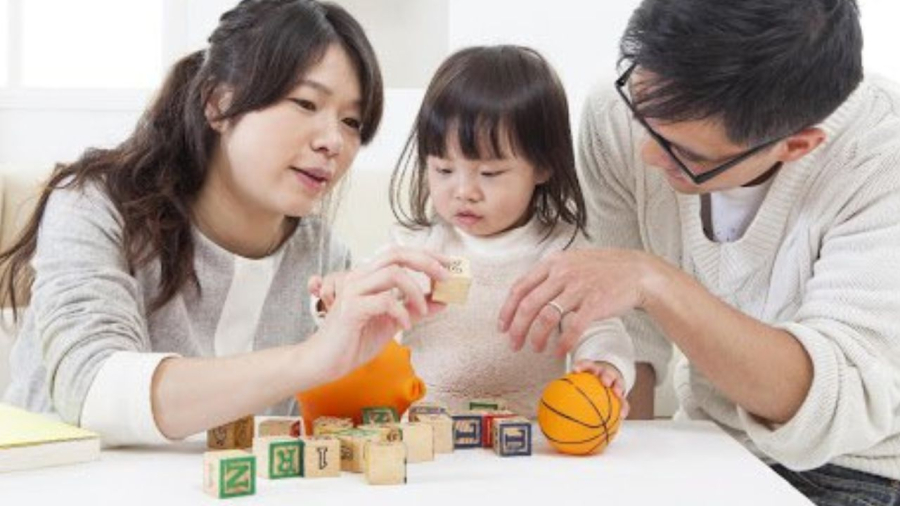The family education environment is extremely important to an individual. Parents are the ones who give birth to and are closest to the child. Each child has a unique personality, so there is no “hard” imposed advice for all. However, most successful children have the following common points:

Parents study with their children
When parents encourage and study with their children, the child will enjoy learning from a young age. Learning helps individuals grow and gain more knowledge and better skills. Continuous learning and lifelong learning are characteristics of successful and happy people. When children are eager to learn, they will be interested in the lessons. When children are eager to learn, they will have the motivation to progress and develop their minds. However, that motivation must be obtained from a young age and parents are the role models for children to follow. Don’t let your child study alone. Parents should take the initiative to be learners and start again with the lessons for young children.
Let the children do housework, don’t spoil them
Parents allowing their children to do housework from a young age will help them grow up to be successful individuals. This is one of the messages that many experts in the field of educational psychology mention. Children who know how to do household chores will grow up to be diligent, understand the value of labor, actively work, and appreciate labor. And that creates conditions for them to break free from the cocoon of their parents and still be loved by others. And they will usually be more confident, independent. These children have empathy and good relationships with others. That habit also helps children easily take on all roles in work when they grow up.

Parents teach children social skills, not just knowledge
Children who are taught social skills by their parents from a young age will find it easier to cooperate with friends and others. They have self-discipline and understand others, and have better emotional intelligence. As adults, they will quickly find work, have better career advancement, and be more loved. People with limited social skills are more likely to encounter social problems, fall easily, and be tempted.
Social skills and emotions are important factors for children to prepare for a brighter future. From an early age, these skills can determine whether a child will enjoy learning and education or indulge in play and fall.
Parents teach children empathy
Showing empathy for children and others helps young children learn how to interact with others and empathize with others. Ask about your child’s problems and show empathy to support them. Show concern for your child’s emotions, and you will receive great love in return and be able to enter your child’s inner world. Children who can do that will gain trust, love, and respect from others as they venture out into the world. Don’t forget to ask your child to pay attention to the emotions of those around them. If you are in the park, you can show your child how to observe the attitudes of others and ask your child, “How do you think that person is feeling?”. Empathy is a key for individuals to enter the world of others and solve their own problems.
Parents have high expectations
The expectations of parents for their children have a strong impact on their achievements in the future, but expectations do not mean pressure, coercion, or control of children’s freedom. Proper expectations and encouragement will motivate children to develop better. Proper expectations are like a prophecy that when you expect them, they will come true.

Parents care about their children’s interests
Genuinely caring about a child’s interests helps them feel respected and they will share their problems. At the same time, your concern will help you understand your child and recognize their strengths/weaknesses, and support them in the best way, helping them when they lose their way, and providing them with the best advice. Parents should not ask their children to give up healthy hobbies, and not force them to only study and work like adults. Everyone needs to play, and that is how children grow up and become smarter.
Parents do not argue in front of their children
Family conflicts and disharmony between parents are extremely detrimental to young children. These things become wounds in the hearts of children from a young age. The harmonious love of parents for their children brings them encouragement, development, happiness, and optimism. Parents arguing makes children feel pain, loss, and regret.
Parents have a high level of education
The high level of education of parents is a foundation for parents to support their children and it is also a motivation for children to strive to achieve the same as their parents. Parents with a high level of education are also role models for their children.



































